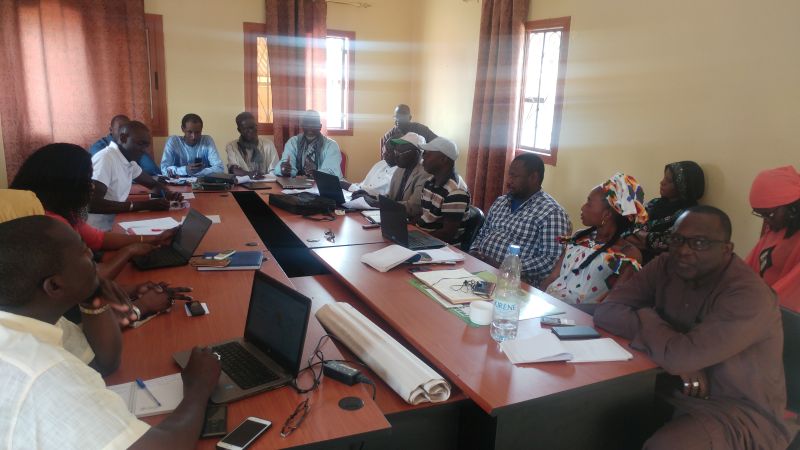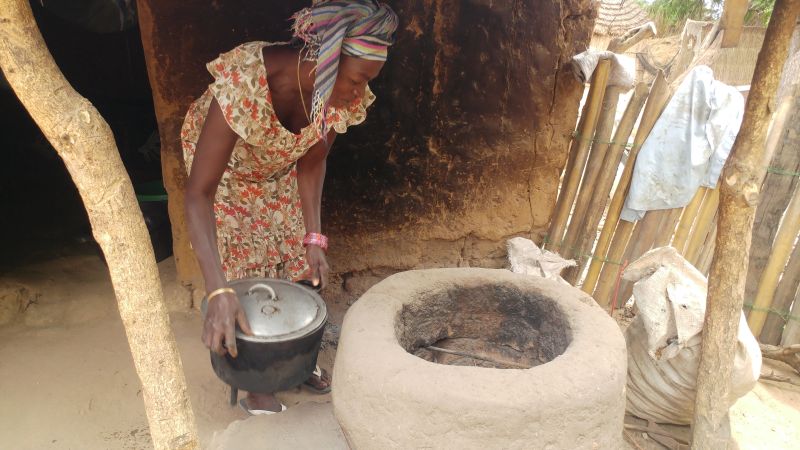Make Your Experiences Count. They Can Change the World.
LET’S BRING ALL OF OUR KNOWLEDGE AND EXPERIENCES TOGETHER.
TOGETHER WE KNOW MORE. TOGETHER WE ACHIEVE MORE. TOGETHER WE DO BETTER.
LET’S BRING ALL OF OUR KNOWLEDGE AND EXPERIENCES TOGETHER.
TOGETHER WE KNOW MORE. TOGETHER WE ACHIEVE MORE. TOGETHER WE DO BETTER.
Published: August 24, 2021
Reporting processes usually don’t make it to rank in our office favorite task charts. Their content, however, is quite interesting, which is why we decided to have a special interview series in order to pack up the report contents in a more entertaining way. In this post Jasmin Thomas, Programme Coordinator of Senegal, shares her personal point of view on the programme report 2020 with us as well as the biggest lessons learned, surprises and highlights.

Short and crisp: How would you describe the reporting process?
The whole process is improving – step by step. First, the entire programme report is written in French in the Country Office – with the outcome per results. Afterwards, I compile everything and translate the report into German. Actually, the process is such that everyone works on it at the same time, because in practice some information usually comes too late. Every year, the logframe holds the greatest potential for discussion. Nevertheless, there is a noticeable improvement from year to year and, together with the Country Office, we are becoming an increasingly well-coordinated team.
Where there any surprises for you this year? Did you find any unexpected results?
Due to COVID-19, there were significant constraints in programme implementation. Therefore, I did not expect that we would be able to achieve our result of increasing farmers’ income compared to 2019. One of the consequences of COVID was that the markets were closed, thus people could sell much less. That’s the reason why the actual overall income increase was definitely a surprise for me. An explanation could be the expansion of the target groups.
Furthermore, I still found it surprising that in agricultural production the consequences of the pandemic were not really noticeable. At the beginning of the pandemic, farmers were afraid that the seeds would not be delivered on time and that they would not be able to cultivate their fields. Fortunately, in most cases it turned out well and production during the rainy season went very smoothly.
(Find a partner experience from Symbiose on agroecology here.)

What were the most important learnings and take-aways for you from the report?
As far as the content is concerned, it became clear from the report that we still have catching up potential in Senegal when it comes to virtual meetings. While in many other regions there was a high increase in online workshops, this development was not as strong in Senegal. Contact with the partner organisations was maintained above all via telephone. On the one hand, this is due to the weak internet connection in the Country Office. Planning an online event is therefore particularly difficult, as you can never be sure that the connection will work. On the other hand, the partners and our Country Office staff prefer physical meetings to virtual ones.
(Find a partner experience from Symbiose about local development here.)
What were your highlights in 2020?

My personal highlight was that despite the impairments caused by Corona, quite a lot has happened and a lot of goals were achieved. There were differences among the partner organisations as to how many activities could actually be implemented. Overall, however, more than expected was achieved.
For example, 150 ecological stoves were produced by one partner for local households. The stoves are mainly used by women. The reports of their experiences are very positive. They need less firewood due to the stoves, whereby the stoves stay warm longer, and thus also save time, energy and costs when collecting wood. They also help to avoid accidents, as there is no more handling of open fire while cooking. Smoke production is also significantly reduced by the stoves, which has positive effects on the health of the household members. The beneficiaries’ experiences have thus been exclusively positive.
Another good practice example is the vegetable gardens that many of our partners maintain, especially with women’s groups. In 2019, the gardens harvested 314 tonnes, compared to 643 tonnes in 2020. The difference here is remarkable.
We also measure annually how long the producers manage with their harvests. Production takes place between June and October. The harvest should last the farmers a whole year. In 2019, it lasted 7 months, in 2020 they were able to get by for 9 months. Here, of course, one must also take into account that weather conditions play a central role. The positive development can therefore also unexpectedly take a different direction again.
What actually disappointed me was that I had to cancel my trip to Senegal because of the pandemic. All the more I hope that I will still be able to travel this year.